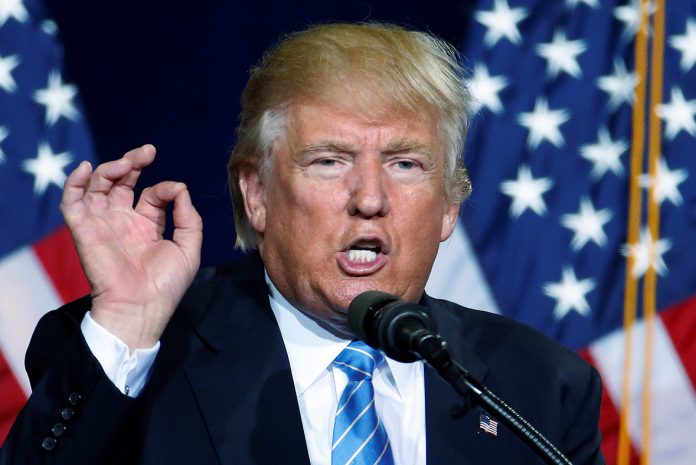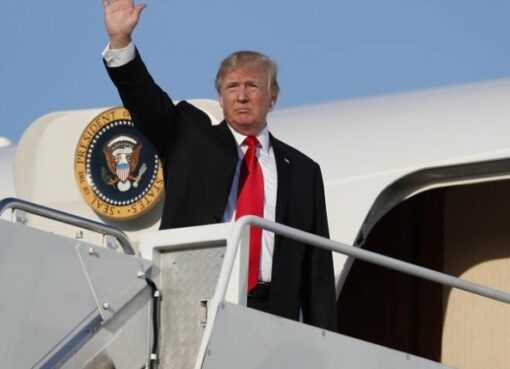by Prasad Nallapati
America is in a shock and it takes a while to reconcile to the fact that Donald Trump is their new President-elect. On his part, Trump declared, in his first speech after the election victory, that he will be the President for all American people and sought the hand of those not voted for him to help unite the country and “make it great” once again.
Many of the US allies in Latin America, Europe, Middle East and Asia-Pacific are also gearing up to face some tough demands from the new President. If his foreign policy speeches during the campaign are any indication, many of these alliances are up for a “friendly” shake-up.
In the vertically divided American polity, US-India ties are perhaps one of the very few relationships that enjoy bi-partisan blessings and hence likely to continue to flourish even under the Trump administration. India was, therefore, fairly relaxed throughout the election season while the whole world was tense on the outcome of polling.
However, Indo-US relations too will be subject to “minor” adjustments, some of which may not be quite palatable to Indian corporates.
There is likely to be deeper political and diplomatic engagement between the two countries for cooperation in dealing with terrorism, security, defense matters, and trade relations, while visa and immigration issues would come under greater strain. American companies which were proposing to shift their operations from the US to India may also slow down or shut off their plans, at least temporarily.
Trump team begins their “transition” process with a handicap. His brash style antagonized most of the GOP establishment and about 150 Republican experts had signed a memorandum to keep themselves away from Trump. In the light of negative Gallup poll indicators throughout the campaign, he got his team focus entirely on election process rather than building a `transition team’ for post-victory preparations. He, hence, lacked an experienced pool of experts to advise him on foreign policy and security issues. Much of his foreign policy posture during the campaign process was based on his own assessments and would be subject to re-positioning as he now starts building up his `transition team’ and gets daily briefings from Obama administration.
The President-elect stated, at a campaign event organized by the Republican Hindu Coalition, “I look forward working with Prime Minister Modi. He has done a great job in reforming India’s bureaucracy”. He described India as a “natural” and a “key strategic” ally. “Under a Trump administration, we are going to be best friends. There won’t be any relationship more important to us”, he said. Condemning the terrorist attacks in Mumbai and on the Indian Parliament, he promised to stand “shoulder to shoulder” with India and share intelligence for keeping their people safe from radical Islamic terrorism. With regard to Pakistan, in another context, he said “Get it straight. Pakistan is not our friend. We’ve given them billions…what did we get? Betrayal. Disrespect.”
In an interview with the Hindustan Times, he also said he would be willing to play a mediating role in addressing the “very, very hot tinderbox” of Kashmir between India and Pakistan. “If it was necessary I would do that. If we could get India and Pakistan getting along, I would be honored to do that. …I think if they wanted me to, I would love to be the mediator or arbitrator.”
Isn’t it sounding familiar?
President Obama had held similar position as he entered White House and it took several briefings by his advisers before there is a change in his stance. Trump begins his Presidency with a very positive `note’ on India and this needs to be `reinforced’ and `nurtured’ through extensive engagement by Indian interlocutors with his Transition Team, which is headed by Governor Chris Christie. Important members of the team, as of now, include former House speaker Newt Gingrich; Lt. Gen. (retd) Michael Flynn, former head of Defense Intelligence Agency; Senator Bob Corker, current chairman of Senate Foreign Relations Committee; John Bolton, former US Ambassador to the UN, who are likely to take up top positions dealing with Foreign Affairs and Security in the Trump Administration.
The new Administration’s very first action would be on “illegal” immigration and prevention of American companies moving to other countries as American “national interests” take over-riding priority. Trump campaign anchored on these two main issues which was perhaps the key to his success. Vice President-elect Mike Pence defined main tenets of Trump’s immigration policy in an interview to the CNN. He said that the plan includes building the wall, no path to legalization or citizenship and stronger border enforcement. “It is going to be fair. It is going to be tough.”
Mexicans are the most effected as they form more than half of the total number of the unauthorized immigrants, whose estimates vary from 10-15 millions. A report of the Pew Research estimates for the year 2012 stated that more than 450,000 unauthorized Indian immigrants live in the US, constituting four per cent of the total illegal immigrants in the country. Chinese account for 300,000, followed by the Philippines, and the Koreans. Obama Administration’s policy of amnesty and citizenship to illegal immigrants is expected to be abandoned creating an uncertainly on their future.
Trump’s allegation of American “jobs theft” found resonance in many of the swing states like Florida. He accused IBM of laying off 500 workers in Minneapolis and shifting their jobs to India and other countries, Goodrich Lighting Systems 255 workers, Baxter Health Care Corporation 199 workers and so on and so forth. Stating that Florida has lost one in four of its manufacturing jobs since the North American Free Trade Agreement (NAFTA), Trump assured that the accord would be renegotiated. He also promised to stop the Trans-Pacific Partnership (TPP), which he described as `job-killer’.
`Job-preservation’ and `job-creation’ are thus another key factor that would have an impact, though a short term one, on Indo-US relations. However, this will have a limited impact as both the American and Indian corporates try adjust to new realities. Indians are already facing visa restrictions and this will accentuate in the short term, stabilizing over the long term as bilateral strategic relations take firm root.
Hence, barring short term impact on immigration and American investments in India, the trajectory for growth of Indo-US relations look quite positive.
(Prasad is President of the Hyderabad-based Centre for Asia-Africa Policy Research and Additional Secretary to Govt of India)




